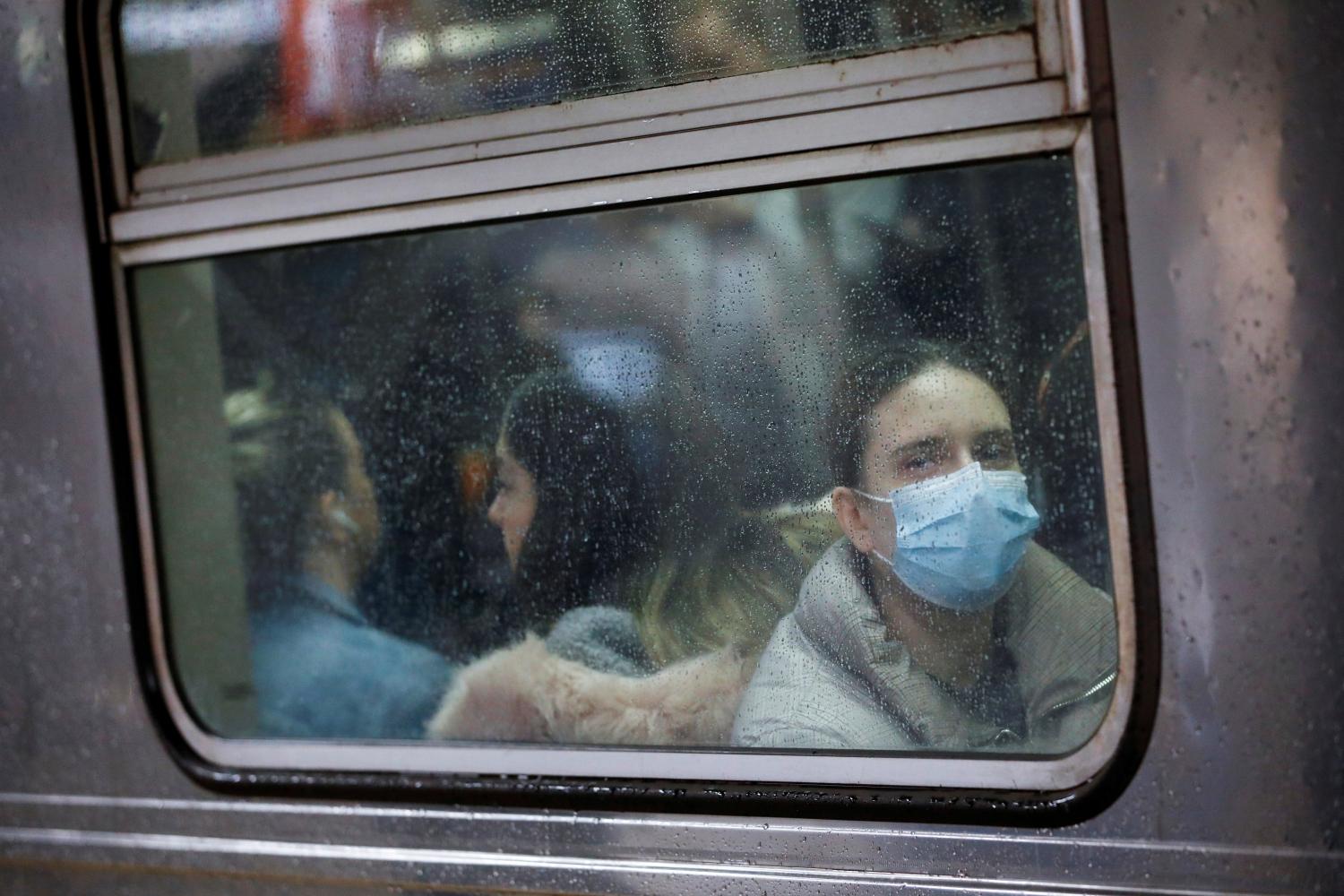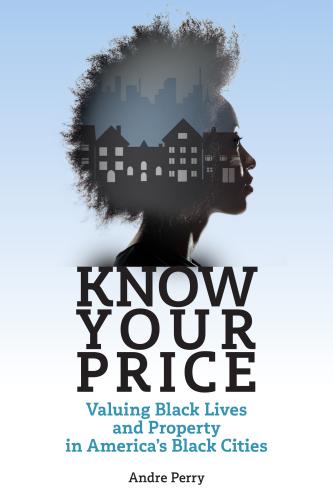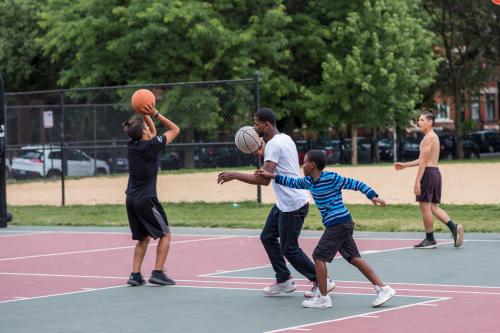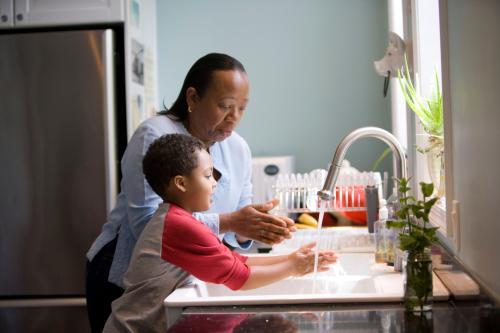As the country tries to cope with the COVID-19 pandemic, one phrase has been bandied about with great regularity: We’re all in this together. It suggests there is a renewed recognition that if our neighbors are sick, then we are vulnerable. The collective efforts of citizens and noncitizens, Democrats and Republicans, and the people of different ethnic groups to flatten the disease’s curve has illuminated how interconnected and interdependent diverse people in different locales are to one another.
Indeed, Black-owned businesses are highly engaged on frontlines of the epidemic. Black-owned firms with paid employees generate over $103 billion in revenue annually, with the largest share (about $17 billion, or 16%) earned in the health care and social assistance sector. Some of the top industries for Black-owned businesses, by number of firms, include occupations that are directly combating the virus or are most impacted by the country’s social distancing measures:
- Twenty-nine percent of all Black-owned businesses with paid employees are in the health care and social assistance professions, which includes independent practices of physicians, as well as continuing care/assisted living and youth services.
- Ten percent are in administrative, support, waste management, and remediation services, which includes call centers, temp agencies, collection bureaus, and recycling and waste management facilities.
- Eight percent are in retail trade, which includes everything from grocery stores to home furnishings to gasoline. Restaurants are not included in this.
Figure 1. Top industries for Black-owned businesses by annual revenue, U.S., 2012
| 1. Health care and social assistance | $17 billion |
| 2. Retail trade | $14 billion |
| 3. Wholesale trade | $12 billion |
| 4. Professional, scientific, and technical services | $11 billion |
Source: Brookings analysis of U.S. Census Bureau’s Survey of Business Owners data.
The nature of businesses that generate significant revenue for Black people place them in the center of the fight against COVID-19—but also at the center of the pandemic’s economic fallout. The median white family has roughly 10 times the amount of wealth as the median Black family, meaning Black business owners generally have less cushion to deal with economic shocks. Many minority-owned businesses did not survive the Great Recession; Brookings’s Joseph Parilla and Sifan Liu found that about 60% of white-owned businesses that existed in 2002 were still around in 2011, compared to 49% of Black-owned firms.
Black-owned businesses suffer from historic and persistent underinvestment even when the economy is booming. Before the COVID-19 pandemic, only 1% of Black business owners obtained loans in their founding year, compared to 7% of white business owners, according to the Stanford Institute for Economic Policy Research. Not surprisingly, Black people represent 12.7% of the U.S. population but only 4.3% of the nation’s 22.2 million business owners.
The underrepresentation of Black business owners is not because a lack of aspiration or knowledge. Gallup psychologists have shown that there are no statistically significant differences between white people and Black people on the characteristics that predict success as an entrepreneur.
In addition, Brookings and Gallup found that minority-owned businesses (i.e., Black people, Asian Americans, Latinos or Hispanics, and Native Americans) in general earn significantly higher ratings on Yelp than white-owned firms. However, these highly rated businesses in Black-majority neighborhoods receive less revenue than businesses in white-majority neighborhoods, largely because of consumers’ negative perceptions of Black neighborhoods. Last year, these racial attitudes cost businesses in Black-majority neighborhoods $4 billion in revenue.
The we’re all in this together mantra is a democratic principle that should guide government responses to the crisis. But when it comes to businesses, that axiom is not reciprocated.
In order to provide true relief for Black-owned businesses, policymakers must recognize our interconnectedness. Our economy can be stronger and prosperity more widely shared if we shore up Black businesses with additional grant funding to offset the wealth that has been denied by anti-Black policies, practices, and attitudes.
We are seeing the exact opposite being played out. Congress allocated just $10 million to the Minority Business Development Agency out of the $2.2 trillion coronavirus relief bill.
Hyperlocal Black- and Latino or Hispanic-led banks and Community Development Financial Institutions (CDFIs) should be a greater part of the solution. These local banks know Black communities better than their larger counterparts, but are built to have a low number of clients. There needs to be a hybrid solution in which big banks and financial tech firms—in exchange for receiving federal funds—help build capacity and meet the needs of Black business owners. We must use this short-term crisis to build long-term infrastructure.
Many federal agencies have dedicated offices to help small businesses search and compete for contract opportunities. The Small Business Administration’s HUBZone identifies historically disadvantaged locations across the country (many in the southeast, where a majority of Black cities are located) for directing grants to qualifying small businesses in a range of sectors. The Department of Health and Human Services (HHS) works with the Office of Small and Disadvantaged Business Utilization to incorporate Black-owned businesses into HHS contracts. The Department of Transportation’s Disadvantaged Business Enterprise (DBE) program works to level the playing field for minority-owned businesses that compete for federal contracts in infrastructure investments.
These are examples of targeted, long-term commitments to minority-owned businesses that could extend throughout the recovery from the coronavirus recession. Funding for these and other agencies to assist Black-owned businesses in procuring federal grants in health care and infrastructure sectors would better allow Black-owned businesses to survive the COVID-19 pandemic, and aid in the nation’s economic revival.
If we flatten the curve of racial bias, we can create an even playing field for entrepreneurs. When Black business owners matter just as much as white owners, the country and its economy can emerge from the recovery stronger than ever.
The Brookings Institution is committed to quality, independence, and impact.
We are supported by a diverse array of funders. In line with our values and policies, each Brookings publication represents the sole views of its author(s).










Commentary
Coronavirus economic relief cannot neglect Black-owned business
April 8, 2020